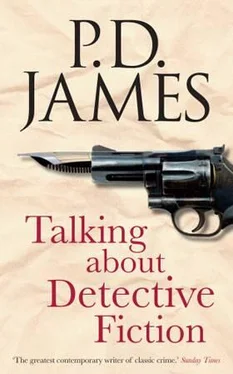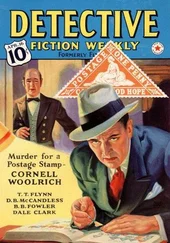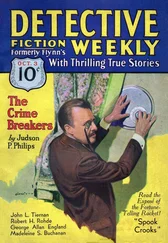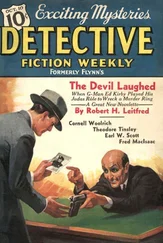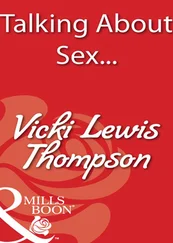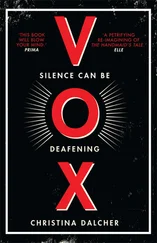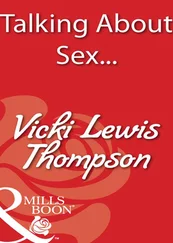I set out to prove them wrong. My theory was that the readers just thought they cared about nothing but the action; that really, although they didn’t know it, the thing they cared about, and that I cared about, was the creation of emotion through dialogue and description.
And that was what, superbly, Chandler provided. In this he reminds me of a very different writer but one who was also brilliant at writing dialogue, Evelyn Waugh. When asked why he never described what his characters were thinking, Waugh replied that he didn’t know what they were thinking, he only knew what they said and did. The hard-boiled detectives are not introspective; it is through action and dialogue that their story is told.
Chandler ’s hero, Philip Marlowe, accepts that he is earning a precarious and dangerous living in a world which is lawless, tawdry and corrupt but, unlike Spade, he has a social conscience, personal integrity and a moral code beyond unquestioning loyalty to his job and colleagues. He is discriminating about the kind of work he will accept, never takes tainted money or betrays a friend, and is totally loyal even to undeserving clients. More personally vulnerable than Spade, he is a more reluctant private eye, troubled and repelled by the corrupt and heartless world in which he earns his living and uncomfortably sensitive to the suffering of its victims. In the words of a character in The Long Goodbye ,
“There ain’t no clean way to make a hundred million bucks… Somewhere along the line guys got pushed to the wall, nice little businesses got the ground cut out from under them… Decent people lost their jobs… Big money is big power and big power gets used wrong. It’s the system.”
Marlowe tells his story in the first person in prose that is terse but richly descriptive and larded with wisecracks.
I wasn’t wearing a gun… I doubted if it would do me any good. The big man would probably take it away from me and eat it.
The story may at times be incoherent but the writing never disappoints in what Chandler cared most about, the creation of emotion through dialogue and description.
Both Sam Spade and Philip Marlowe are licensed investigators and, unlike the British amateur detectives, have to some extent a recognised function and authority. But their attitude to the police is ambivalent, ranging from a wary and reluctant co-operation to open enmity. The police are seen by both as brutal and corrupt. Captain Gregorius of The Long Goodbye “solves crimes with the bright light, the soft sap, the kick to the kidneys, the knee to the groin, the fist to the solar plexus, the night stick to the base of the spine.” Even after a beating from Gregorius, Marlowe, unyielding to his brutality, has the courage to hurl his contempt in Gregorius’s face. “I wouldn’t betray an enemy into your hands. You’re not only a gorilla, you’re an incompetent.” How different from the honest and paternal Superintendent Kirk in Dorothy L. Sayers’s Busman’s Honeymoon , unable to speak grammatical English when discussing the case of the body in the cellar with Peter Wimsey, but always ready to compete with Lord Peter in dredging up an appropriate quotation to demonstrate his literary credentials.
In a famous passage from his critical essay The Simple Art of Murder , Chandler describes his detective in words which were more appropriate to a work of high romance:
In everything that can be called art there is a quality of redemption… But down these mean streets a man must go who is not himself mean, who is neither tarnished nor afraid. The detective in this kind of story must be such a man. He is the hero, he is everything… He must be the best man in his world and a good enough man for any world.
This is surely too romantic and unrealistic a view to be credible. The vision of Continental Op, Sam Spade, or even the compassionate Marlowe, riding forth like a knight errant to redress the evils of the world of which he is a part, does violence both to the ethos of the hard-boiled school and to the character, and surely makes Marlowe as much a figure of fantasy as Lord Peter Wimsey Very different, too, is the hard-boiled detectives’ response to women. The Op and Spade generally preserve their emotions as inviolate as the secrets they uncover, and only Marlowe is susceptible to love. Here are no brave and cheerful comrades-in-arms, no devoted non-interfering wives at home with their knitting, no successful professional women with interesting lives of their own, no carefully crafted figures of wish-fulfilment. The women in the hard-boiler are sexually alluring temptresses seen by the hero as inimical both to their masculine code and to the success of the job. They may not all get shot in the leg, but if guilty they are likely to be handed over to the police without compunction.
We have, of course, always had the most notable detective stories of America and Canada available in this country, including the hard-boiled school. I came to the American hard-boiled school in the 1960s through the work of Ross Macdonald, the pseudonym of Kenneth Millar (1915-1983), and he remains my favourite of the triumvirate of the best-known hard-boiled writers. His childhood was a tragic odyssey of poverty and rejection. His mother, deserted by her husband when Macdonald was three, dragged him round Canada depending on the charity of relatives, and Macdonald narrowly escaped the appalling fate of being consigned to an orphanage. Such pain in childhood is never forgotten and seldom forgiven, and all his writing life Mac-donald’s fiction was influenced by the inescapable heritage of the past. His detective, Lew Archer, is in the tradition of Philip Marlowe and, like Marlowe, he casts a critical eye on society, concerned particularly with the searing damage to the human spirit caused by the ruthlessness, greed and corruption of big business. Although Macdonald’s complicated plots are not without violence, he is more a detached observer than a participator, somewhat resembling a secular Father Brown in his empathy for human suffering. Less romantic than Chandler, his style has the vigour and imaginative richness of a man confident of his mastery of epithets and, particularly in his later novels, he attains a standard which places him first among those novelists who raised the genre from its roots in pulp fiction to serious literature. In an influential review in 1969, the writer Eudora Welty described his work as “the finest series of detective novels ever written by an American,” a verdict with which I feel few critics would disagree.
For me the most remarkable of the moderns is Sara Paretsky When she created her private eye, V. I. Warshawski, it was in conscious emulation of the myth of the solitary private eye and his lone campaign against the corruption of the powerful, but her Polish-American heroine has a humility, a humanity and a need for human relationships which the male hard-boilers lack. Her territory is Chicago, not the Chicago of the dramatic city centre or the prosperous suburbs, but the city’s southeast side, the neighbourhood of the poor who live in shanties on the contaminated marshland known as Dead Stick Pond. Paretsky creates a powerful vision of the Chicago where V. I. Warshawski grew up and where she operates as a courageous, sexually liberated female investigator. Through her heroine and in her private life of speaking and journalism, Paretsky conducts her campaign against injustice and, in particular, for the right of women to control their lives and their sexuality. No other female crime writer has so powerfully and effectively combined a well-crafted detective story with the novel of social realism and protest. And here, too, we see the influence of Raymond Chandler.
Chandler despised the English school of crime writing, stating that “the English may not always be the best writers in the world, but they are incomparably the best dull writers,” his most vituperative criticism being directed at Dorothy L. Sayers. In 1930, the year in which Hammett published The Maltese Falcon , the Golden Age in England was at the height of its popularity. Agatha Christie brought out The Murder at the Vicarage , Dorothy L. Sayers Strong Poison , Margery Allingham Mystery Mile , and, four years later, Ngaio Marsh was to make her debut with A Man Lay Dead . These four highly successful women are among the relatively few whose books are still in print and read today, a longevity undoubtedly sustained, in the case of Christie and Sayers, by television. All four consolidated and affirmed the structure and conventions of the classical detective story, inventing detectives who have entered into the mythology of the genre. Three of the women aspired to, and achieved, a standard of writing and characterisation which helped to raise the reputation of the detective story from a harmless but predictable literary diversion into a popular form that could be taken as seriously as a well-written mainstream novel.
Читать дальше
